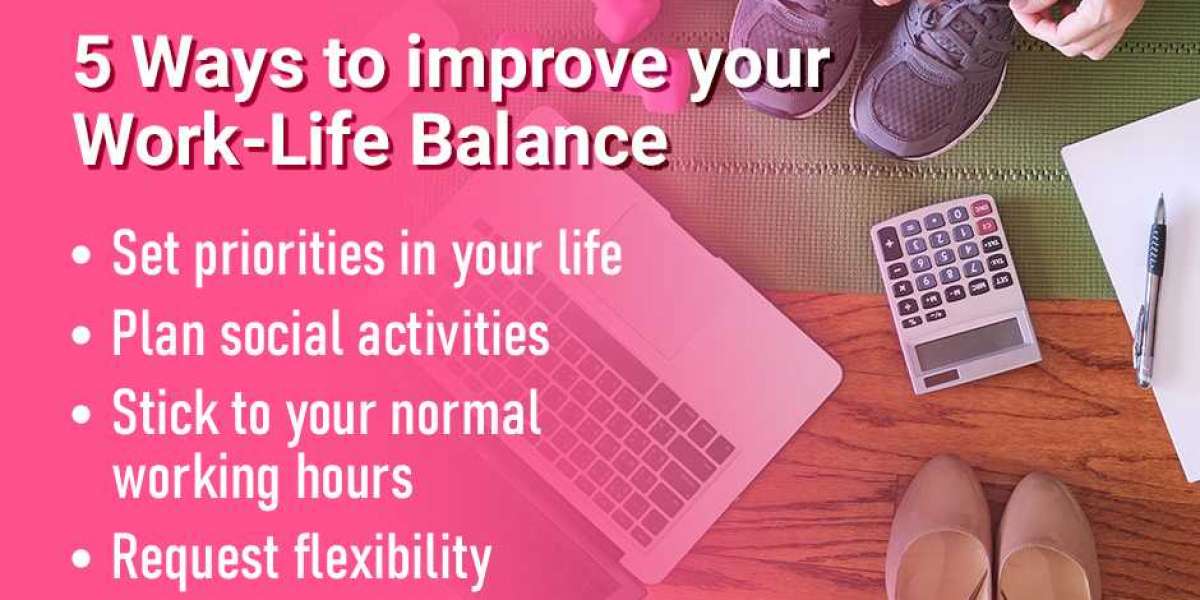This article explores the benefits of work-life balance, offers practical tips to improve it, and highlights the importance of prioritising this equilibrium.
Understanding the Benefits of Work-Life Balance:
A. Enhanced Mental Health: Maintaining a healthy work-life balance reduces stress levels, decreases the risk of burnout, and improves overall mental well-being.
B. Increased Productivity: By allowing time for rest and rejuvenation, individuals can recharge and approach their work with greater focus and efficiency.
C. Improved Relationships: Prioritising personal life enables individuals to nurture and strengthen relationships with family, friends, and loved ones, leading to greater fulfilment and support networks.
Practical Tips to Improve Work-Life Balance:
A. Set Clear Boundaries:
- Establish specific work hours and avoid extending them unnecessarily.
- Define personal time and dedicate it solely to non-work activities.
- Communicate boundaries effectively with colleagues, clients, and supervisors.
B. Prioritize Self-Care:
- Allocate time for physical exercise, adequate sleep, and healthy eating habits.
- Engage in activities that bring joy and relaxation, such as hobbies or mindfulness practices.
- Practice self-compassion and avoid overloading yourself with excessive commitments.
C. Delegate and Outsource:
- Learn to delegate tasks at work and enlist the support of colleagues or employees.
- Consider outsourcing non-work-related responsibilities, such as household chores or administrative tasks, to free up valuable time.
D. Efficient Time Management:
- Prioritize tasks based on urgency and importance, utilising tools like to-do lists or time-tracking apps.
- Avoid multitasking and focus on one task at a time to maximise productivity and reduce stress.
- Minimise distractions by setting boundaries with technology and allocating dedicated time for email or social media.
E. Learn to Say No:
- Assess your workload realistically and decline additional responsibilities when necessary.
- Communicate assertively and offer alternative solutions or compromises when turning down requests.
The Importance of Prioritizing Work-Life Balance: A. Health and Well-being:
- Chronic stress and neglecting personal needs can lead to physical and mental health issues.
- Prioritising work-life balance promotes self-care, prevents burnout, and fosters a healthier lifestyle.
B. Job Satisfaction:
- Achieving a work-life balance enhances job satisfaction, as individuals feel fulfilled both personally and professionally.
- Sustained job satisfaction leads to greater motivation, engagement, and longevity in one’s career.
C. Relationships and Happiness:
- Nurturing relationships with loved ones strengthens personal bonds and contributes to overall happiness.
- Spending quality time with family and friends fosters a support system that can alleviate stress and enhance emotional well-being.
Conclusion:
In the modern world, achieving work-life balance is more important than ever. By understanding the benefits of work-life balance and implementing practical strategies, individuals can improve their overall well-being, enhance productivity, and experience greater satisfaction in both their personal and professional lives. Prioritising self-care, setting boundaries, efficient time management, and learning to say no are key steps towards attaining a harmonious work-life balance. Remember, striking the right balance between work and personal life is an ongoing process that requires conscious effort, but the rewards are invaluable.
Read more blogs related to Vedanta Philosophy at Yuvaap.
Source: Improve Work-Life Balance














